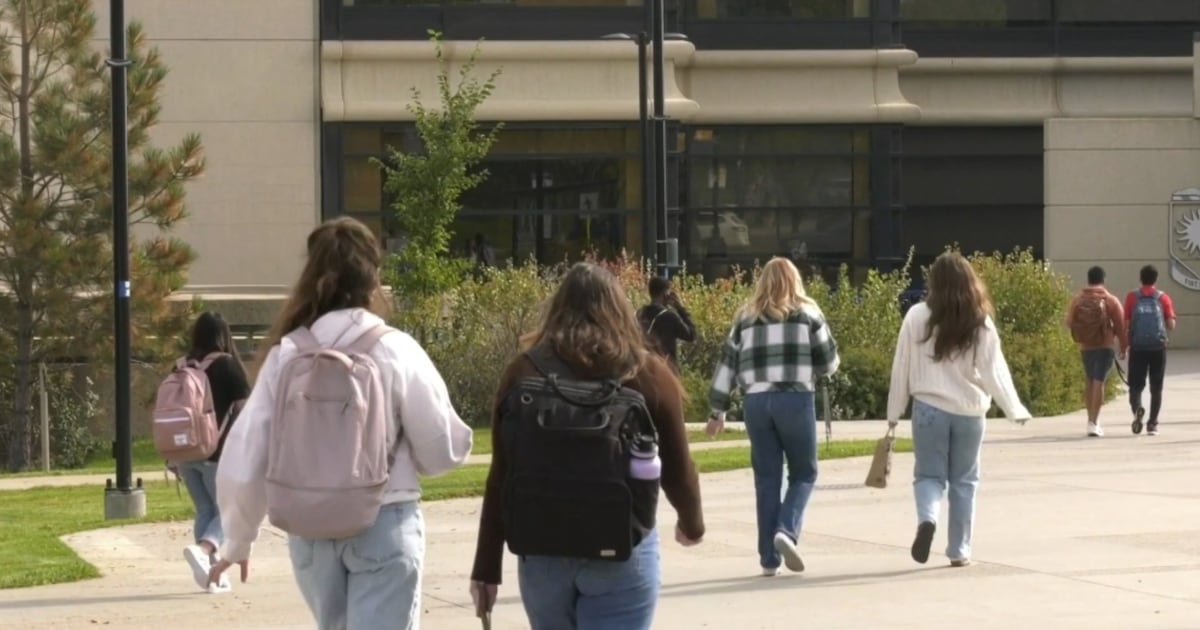Health
New Brunswick Youth Fall Short of National Health Guidelines

A recent survey conducted by the New Brunswick Student Wellness and Education (SWES) reveals that the majority of youth in the province are not meeting national health behaviour guidelines. The findings, based on the 2024-2025 survey, highlight several critical areas including physical activity, sleep patterns, and recreational screen time. More than 46,000 students from grades 6 to 12 across public schools in New Brunswick participated in this latest assessment.
The New Brunswick Health Council (NBHC) characterized the survey as a significant tool for gauging wellness in local communities. According to an official release, “This survey provides valuable insights to citizens, educators, service providers, and policymakers by measuring wellness at the local level.”
The data indicates concerning trends among the youth. Approximately 21 percent, or over 11,000 students, reported using one or more substances. This statistic has prompted calls for immediate action from community leaders. “These results are a call to action,” stated Stéphane Robichaud, CEO of the NBHC. “They show that many youth in New Brunswick are not engaging in the health behaviours known to support strong mental and physical well-being. This isn’t just a youth issue – it’s a community issue.”
Comparative data from Statistics Canada shows that New Brunswick youth are less likely to classify their physical or mental health as “excellent” or “very good” compared to their peers across the country. The NBHC emphasizes the interconnection between adequate sleep, physical activity, and limited screen time, stating that these behaviours are strongly linked to better health outcomes.
Local Variations and Community Responses
The NBHC notes that health behaviours among young people vary significantly throughout New Brunswick, underscoring the need for tailored approaches to address youth health and well-being. The challenge lies not only in encouraging healthier habits but also in creating supportive environments that foster positive change in communities.
Robichaud stressed the importance of coordinated long-term efforts directed at the unique needs of youth. “If we want to see improvement, we need long-term, coordinated efforts tailored to the specific needs of youth in our communities,” he remarked.
The ongoing survey from SWES serves as a critical reminder of the health challenges facing the youth of New Brunswick. As stakeholders assess these findings, a collaborative strategy involving educators, health professionals, and local organizations will be essential in fostering a healthier future for the province’s young population.
For further updates on health and wellness in New Brunswick, continue to follow local news outlets and community initiatives aimed at improving youth health.
-

 Education3 months ago
Education3 months agoBrandon University’s Failed $5 Million Project Sparks Oversight Review
-

 Science4 months ago
Science4 months agoMicrosoft Confirms U.S. Law Overrules Canadian Data Sovereignty
-

 Lifestyle3 months ago
Lifestyle3 months agoWinnipeg Celebrates Culinary Creativity During Le Burger Week 2025
-

 Health4 months ago
Health4 months agoMontreal’s Groupe Marcelle Leads Canadian Cosmetic Industry Growth
-

 Science4 months ago
Science4 months agoTech Innovator Amandipp Singh Transforms Hiring for Disabled
-

 Technology4 months ago
Technology4 months agoDragon Ball: Sparking! Zero Launching on Switch and Switch 2 This November
-

 Education4 months ago
Education4 months agoRed River College Launches New Programs to Address Industry Needs
-

 Technology4 months ago
Technology4 months agoGoogle Pixel 10 Pro Fold Specs Unveiled Ahead of Launch
-

 Business3 months ago
Business3 months agoRocket Lab Reports Strong Q2 2025 Revenue Growth and Future Plans
-

 Technology2 months ago
Technology2 months agoDiscord Faces Serious Security Breach Affecting Millions
-

 Education4 months ago
Education4 months agoAlberta Teachers’ Strike: Potential Impacts on Students and Families
-

 Education3 months ago
Education3 months agoNew SĆIȺNEW̱ SṮEȽIṮḴEȽ Elementary Opens in Langford for 2025/2026 Year
-

 Science4 months ago
Science4 months agoChina’s Wukong Spacesuit Sets New Standard for AI in Space
-

 Business4 months ago
Business4 months agoNew Estimates Reveal ChatGPT-5 Energy Use Could Soar
-

 Technology4 months ago
Technology4 months agoWorld of Warcraft Players Buzz Over 19-Quest Bee Challenge
-

 Business4 months ago
Business4 months agoBNA Brewing to Open New Bowling Alley in Downtown Penticton
-

 Business4 months ago
Business4 months agoDawson City Residents Rally Around Buy Canadian Movement
-

 Technology2 months ago
Technology2 months agoHuawei MatePad 12X Redefines Tablet Experience for Professionals
-

 Technology4 months ago
Technology4 months agoFuture Entertainment Launches DDoD with Gameplay Trailer Showcase
-

 Technology4 months ago
Technology4 months agoGlobal Launch of Ragnarok M: Classic Set for September 3, 2025
-

 Technology4 months ago
Technology4 months agoInnovative 140W GaN Travel Adapter Combines Power and Convenience
-

 Top Stories3 months ago
Top Stories3 months agoBlue Jays Shift José Berríos to Bullpen Ahead of Playoffs
-

 Science4 months ago
Science4 months agoXi Labs Innovates with New AI Operating System Set for 2025 Launch
-

 Technology4 months ago
Technology4 months agoNew IDR01 Smart Ring Offers Advanced Sports Tracking for $169










